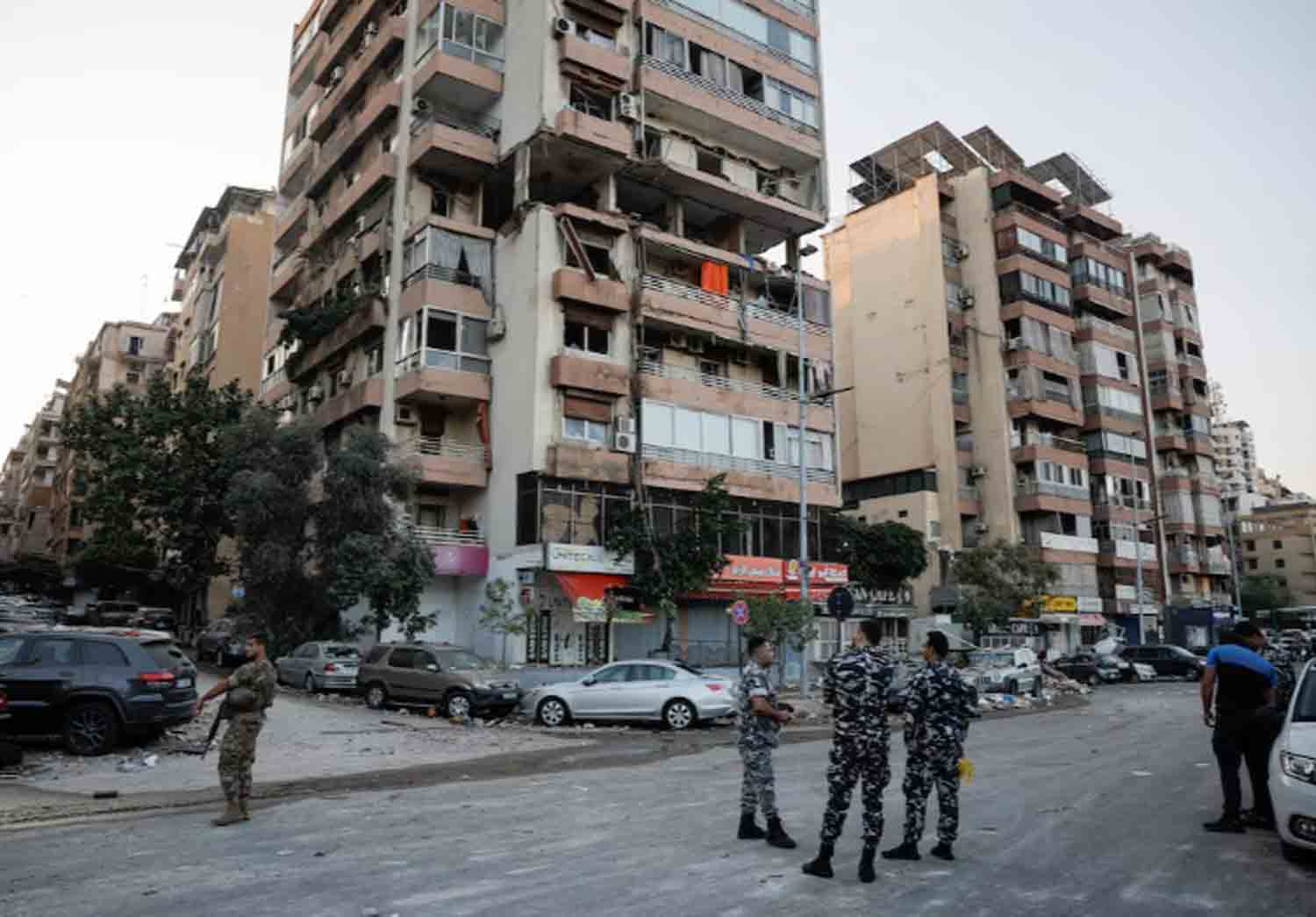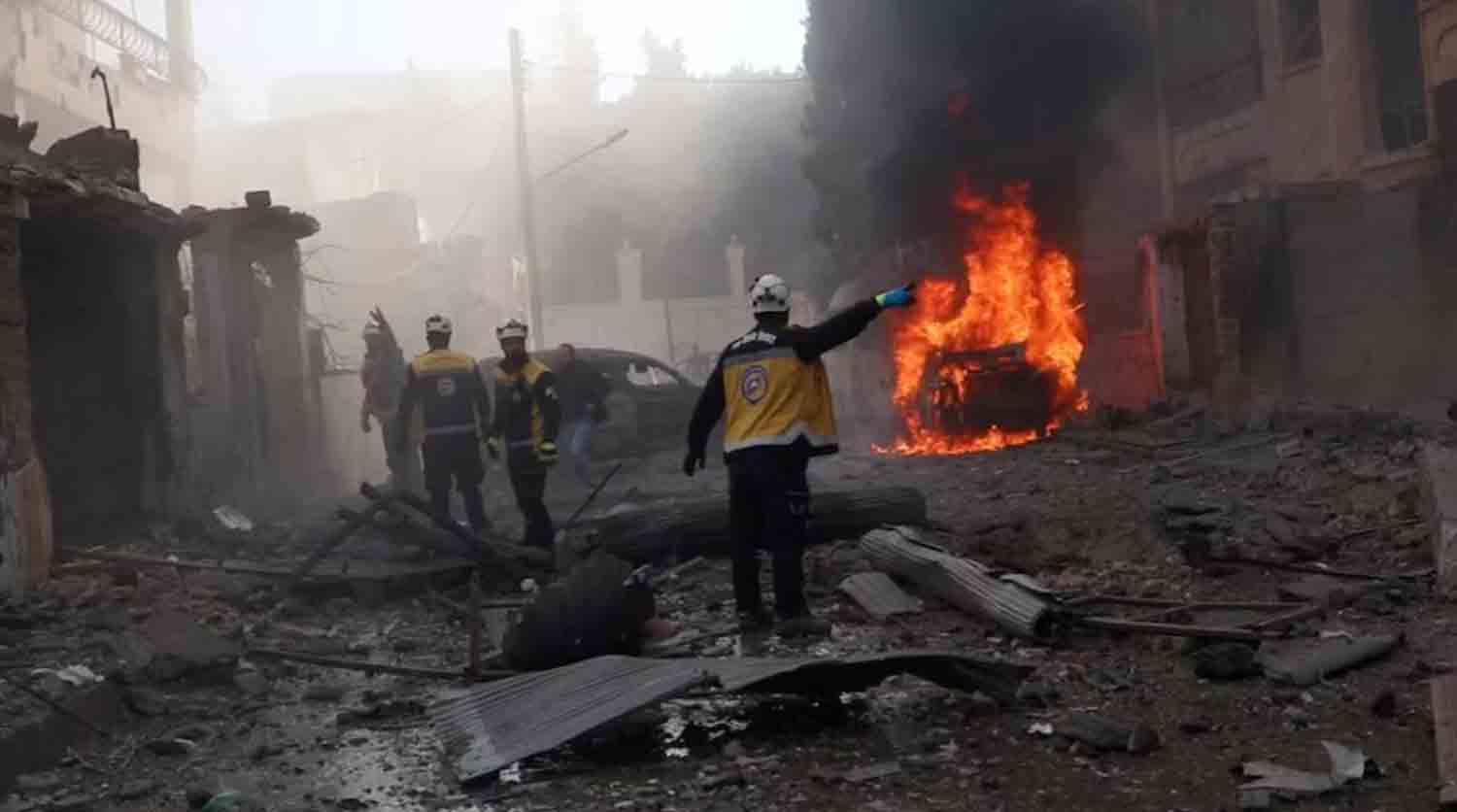A ceasefire agreement between Israel and Hezbollah remained intact on Friday, despite allegations from both parties regarding violations by the other.
The 60-day ceasefire, facilitated by the United States and France, commenced at 4 a.m. on Wednesday following nearly 14 months of cross-border hostilities and just over two months after an Israeli military escalation that caused significant destruction in southern Lebanon, the eastern Bekaa Valley, and the southern suburb of Beirut known as Dahiyeh.
According to the terms of the ceasefire, Hezbollah is required to withdraw north of the Litani River, while Israel is to pull back to the south of the Blue Line. The Lebanese Armed Forces (LAF) will be deployed to oversee the southern region in conjunction with UN peacekeepers from UNIFIL.
Violations
As for violations, Clause 2 of the ceasefire stipulates that Israel must refrain from conducting offensive operations within Lebanese territory, and the Lebanese government is tasked with preventing Hezbollah or other armed factions from launching attacks against Israel. Nevertheless, reports of Israeli attacks within Lebanon have emerged.
Nicholas Blanford, a senior fellow at the Atlantic Council, stated in an interview with Al Jazeera that it appears Israel has already violated clause 2 by firing into Lebanon.
He noted that Israel is also attempting to limit movement in southern Lebanon by issuing a map that designates a red zone, instructing residents not to return home, which contradicts the ceasefire agreement.
Al Jazeera has previously reported that Israel may be trying to establish a buffer zone in southern Lebanon using white phosphorus and other methods.
On Thursday, Israeli forces shot at individuals in a vehicle, labeling them as “suspects” in southern Lebanon.
Israel asserts that these “suspects” breached the ceasefire, while Hezbollah contends that Israel attacked individuals merely trying to return home.
On the same day, Israel announced a curfew in the south and conducted an attack on what it described as a “Hezbollah facility” housing medium-range rockets in the Sidon area, located north of the Litani River.
Additionally, Israeli actions resulted in injuries to three individuals in Markaba and two journalists in Khiam—one from gunfire and the other from shelling—on Wednesday.
The Lebanese army reported on Thursday evening that it is looking into “several” Israeli violations and will prepare a report.
A delicate ceasefire
Despite the reported breaches by Israel, which have elicited strong criticism from Hezbollah leaders, the group has refrained from any military retaliation.
On Friday, Hezbollah reaffirmed its dedication to the ceasefire agreement.
In his first televised statement since the ceasefire was established, Secretary-General Naim Qassem expressed his intention to collaborate with the Lebanese army to uphold the ceasefire, stating that he did not foresee any “problems or disagreements” with the military.
“The collaboration between the resistance and the Lebanese army will be at an elevated level,” Qassem remarked.
After nearly 14 months of conflict, during which Hezbollah and Israeli forces engaged in near-daily exchanges of fire since the onset of the Gaza war in October 2023, the impact on residents of border villages has been particularly severe.
On the Lebanese side, Israeli fire has resulted in the deaths of at least 3,961 individuals, while approximately 140 soldiers and civilians have lost their lives due to Hezbollah fire in Israel.
Israel’s military actions, which intensified following its invasion of Lebanon in September, have led to widespread devastation of homes and infrastructure throughout the country, with the World Bank estimating damages to residential properties at $2.8 billion.
Around 99,000 homes have been either partially or completely destroyed.
As thousands of individuals began returning to their residences on Wednesday, many Lebanese remained apprehensive that the attacks had not fully ceased.
In the Khandaq al-Ghamik neighborhood of Beirut, an Israeli strike had obliterated several floors of a residential building just before the ceasefire took effect.
On Wednesday, Sleiman Omairat stood outside the adjacent building where he resides and operates his office. His office was ruined by debris from the explosion, as was his car, which was parked in front.
There remains a lack of security, he stated. “The Zionists do not allow any.”
Currently, however, Omairat noted that the ceasefire has “restored dignity in the country,” crediting “the boys in the south,” a reference to Hezbollah.
Could Hezbollah take action? ‘Now is not the time’
As the ceasefire was established, Hezbollah seized the moment to declare victory.
On Thursday, they proclaimed they had achieved “victory over the delusional enemy who could neither undermine our resolve nor break our will.”
Israeli Prime Minister Benjamin Netanyahu and former Defense Minister Yoav Gallant frequently expressed their intent to dismantle Hezbollah’s military capabilities, suggesting that Israel would persist until this goal was met.
Nevertheless, Hezbollah continued its assaults on Israel right up until the ceasefire was enacted.
It appears that both parties have had to make concessions. While Hezbollah has managed to survive and maintain its capacity to launch rockets and missiles, analysts indicated that this “victory” came with compromises for the group as well.
Before his assassination, Hezbollah’s former leader Hassan Nasrallah stipulated one condition for concluding the conflict: the cessation of Israel’s actions in Gaza. This condition remains unmet, and ultimately, the connection between the Gaza and Lebanon fronts has been severed with this ceasefire.
Political commentator Kassem Kassir, who is believed to have close ties to Hezbollah, stated to Al Jazeera, “The party remained resolute … it provided its most significant asset for the benefit of Palestine and Gaza.”
Elia Ayoub, a writer and researcher based in the United Kingdom and author of the Hauntologies political newsletter, noted that it is hard to overlook the negative impact the war has had on Hezbollah, which has faced numerous setbacks.
However, Ayoub pointed out that Israel’s actions towards Lebanon may strengthen the resolve of those advocating for armed resistance. “The inability of the Israelis to maintain their previous occupation of southern Lebanon supports Hezbollah’s argument that militarization is essential for Lebanon to avoid the fates of Gaza or the West Bank,” he explained.
Meanwhile, analysts suggest that Hezbollah is currently focused on addressing the needs of its community, which is struggling to rebuild homes and lives. They argue that now is not the appropriate moment for retaliation against ceasefire breaches, as it would be detrimental to the people of Lebanon.
Michael Young, a Lebanon expert at the Carnegie Middle East Center, remarked to Al Jazeera, “Hezbollah is in a vulnerable position, and the broader community is also affected, with 1.2 million people displaced and no resolution in sight.”
He added that Hezbollah is unlikely to engage in conflict with Israel again while residents are returning to their homes in the south, stating, “That would be irrational.”
Blanford emphasized that Hezbollah’s current focus will be on addressing the welfare needs of the Shia community that has suffered greatly, prioritizing this over the rebuilding of its military capabilities.
The aftermath of the conflict raises significant uncertainties regarding Hezbollah’s future.
“Significant restructuring will be necessary,” Blanford stated. “The upper echelons of their leadership have been significantly weakened, and although there are individuals ready to step in, a comprehensive reorganization and internal review are essential.
“It is evident that the Israelis have deeply infiltrated this organization, allowing them to eliminate high-ranking commanders at will,” he noted. “Hezbollah must assess the failures that led to this situation and determine how to rectify them.”
Discover more from Defence Talks | Defense News Hub, Military Updates, Security Insights
Subscribe to get the latest posts sent to your email.





